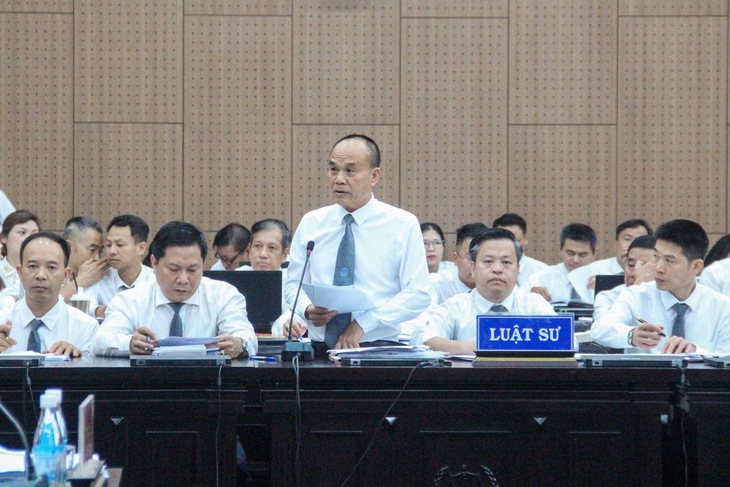The establishment of public attorneys is expected to make state agencies’ participation in lawsuits more professional and effective.
The story can begin with the legal risks that government agencies face when operating the machinery and administrative system.
Practical Needs
According to a report at the 8th Session of the 15th National Assembly, 13,009 administrative cases were accepted in 2024, an increase of nearly 850 cases compared to 2023. Notably, in the preceding complaint resolution stage, the number of cases that had to be received and resolved reached 480,233, a 6% increase from the previous year.
In all such situations, the agencies themselves must shoulder the burden of participating in legal procedures and pursuing the lawsuits.
More specifically, personnel will be assigned, or more fortunately, a working group will be established to handle the case.
However, not every agency or official thoroughly understands or has the responsibility to master the professional skills and legal procedures to pursue a lawsuit. This is not to mention that specialized work can easily be affected.
In reality, in many previous administrative cases, instead of participating directly, the heads of state agencies who were the defendants sent specialists to act on their behalf.
After the Administrative Procedure Law tightened regulations, only allowing the head to delegate authority to deputies in certain cases, the situation still did not improve much. In practice, there have been cases where a provincial People’s Committee was sued, and the Chairman requested… the relevant departments and their directors to take responsibility for participation.
However, when the Trial Panel did not accept this authorization document, it could proceed with a hearing… in the absence of the defendant. There is a reality that in some cases, the heads of the sued agencies gave up participating in dialogue within the administrative procedure.
Of course, this might not violate the law, but it significantly affects the resolution process and even the outcome of the case.
Besides administrative cases, legal entanglements in investment also follow a similar pattern. For this group, the common model for participating in lawsuits is… a working group assigned to participate in the proceedings and a domestic support team.
But still, upon reflection, the working group members are not professional legal practitioners. And most importantly, in theory, pursuing the case will affect their professional duties and the supporting personnel behind them.
The realities mentioned above are part of the reason for the need to build a public attorney corps in our country.
Public Attorney or Private Lawyer?
Clearly, the demand from agencies for public attorneys exists, if not very large. Even some local leaders frankly admitted that there are many administrative cases, they are overloaded, and even straining themselves, they cannot attend all. That’s just attending court hearings, not to mention preparing legal documents.
Both theory and practice show that government agencies also face legal risks when operating the machinery and the administrative system.
In litigation relationships of an equal nature, when the party is the state, it does not have “authority,” is no longer the “official” compared to other parties. Legal documentation, grasping regulations and procedural obligations are therefore important factors that not every official understands clearly and is proficient in.
Therefore, besides the requirement to establish the public attorney institution, Resolution 66-TW/NQ also identifies solutions to attract and recruit excellent lawyers into the public sector.
In the coming time, as more regulations and procedures are introduced, the pressure may increase.
In some cases, public attorneys can represent the government agency as the party initiating the lawsuit.
In practice, there have also been some cases where state agencies hired lawyers to protect their rights. However, not every agency uses this mechanism. On the other hand, this can be seen as an informal mechanism. Not to mention that currently, mobilizing funds to pay fees to lawyers in such cases is not easy.
Therefore, the opinion that it is unnecessary to establish a public attorney corps and that the approximately 20,000 current lawyers can support the state might be an unconvincing option.
One of the requirements is that public attorneys must be a team of professional lawyers with knowledge and skills, especially the ability and recognition to participate in litigation. That is why not every official, even those in the legal department, can easily take on this role.
Public attorneys will be invested in and oriented towards





